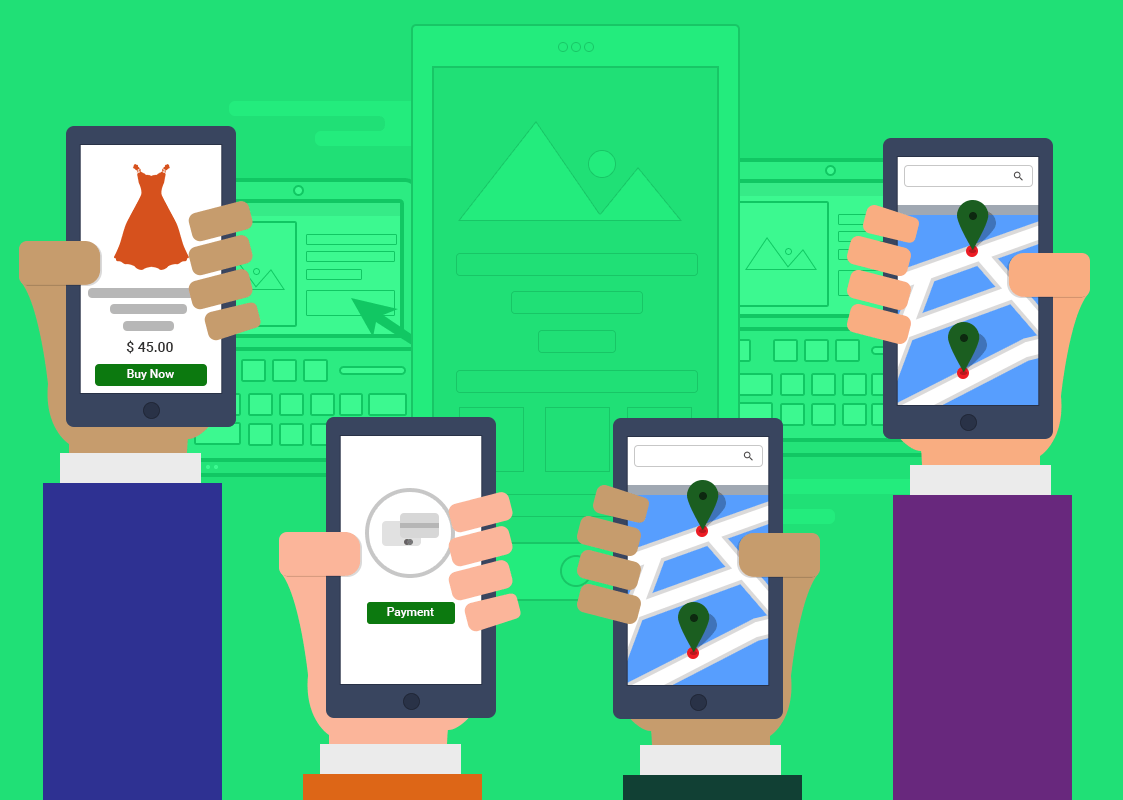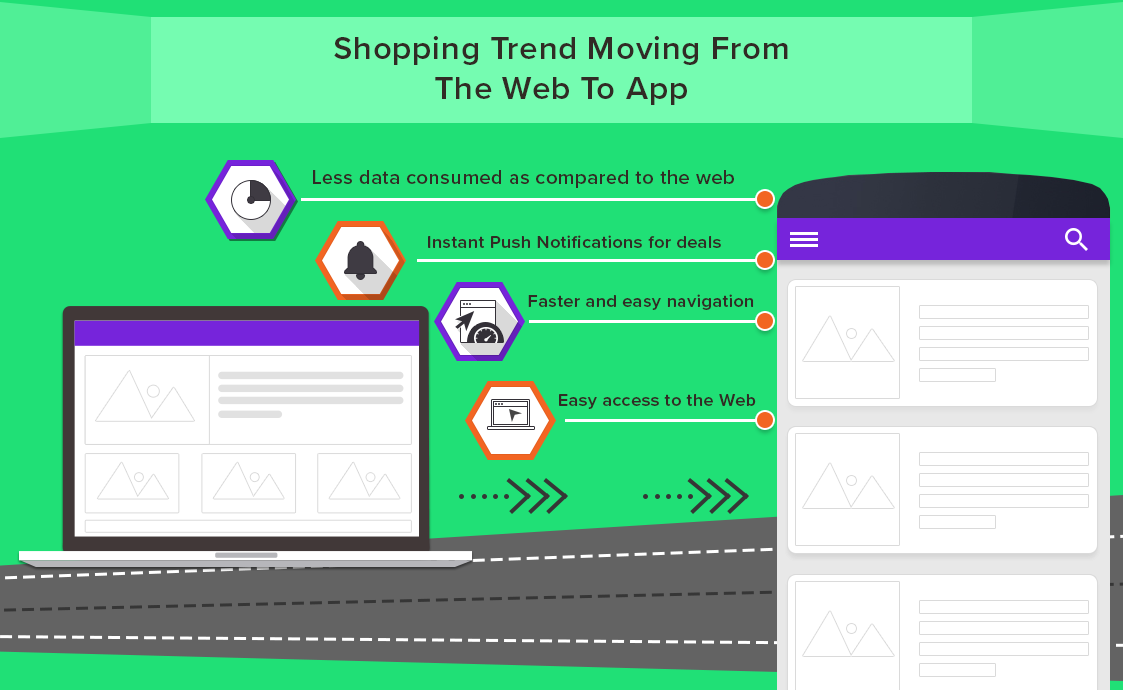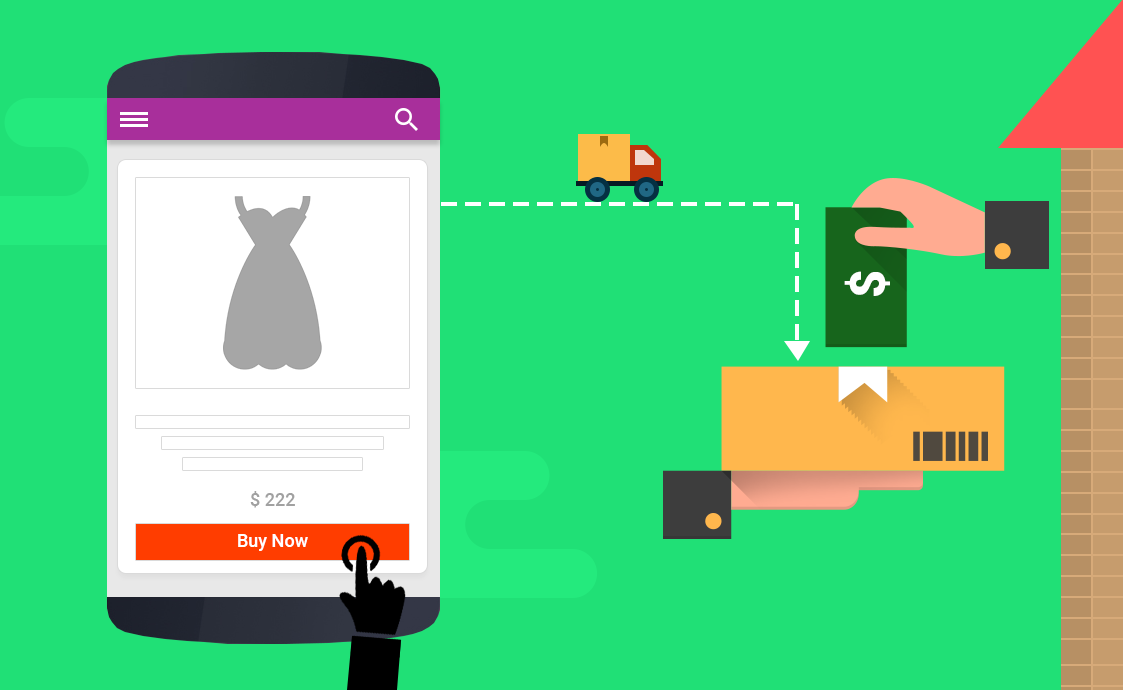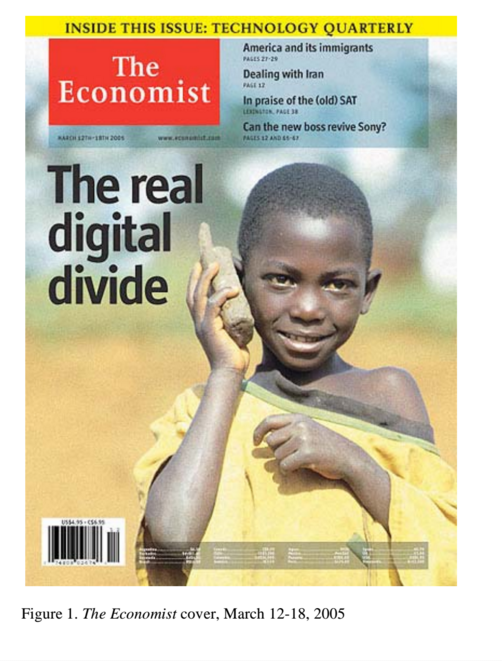Mobile Commerce, a terminology used to describe selling goods and services through mobile devices has become the most popular and powerful drift in e-commerce.
Mobile commerce creates a hassle-free environment for customers to buy goods and services over the mobile platform. They don’t need any expensive devices like desktops/computers to shop online.
Because everyone can’t afford desktops/computers and also they can’t do the shop on the go. Instead of using expensive devices, customers can easily afford mobile devices.
Shopping through mobile devices can give a better shopping experience to customers.
Why is M-Commerce So Important in Nigeria?
No one can deny that Nigeria will lead the way in terms of digital sophistication. With a GDP forecasted to drive from $178 billion in 2012 to $700 billion in 2020, and a population that’s expected to rocket.
It can easily predict that Nigeria will have a stand in the mobile commerce world, this is definitely where the mobile revolution is taking place.
In Africa, Nigeria is a developing country. According to the Financial Times report, Nigeria was able to become one of the most mobile-savvy countries in the world with 140 million mobile subscribers in 2015.
Mobile users are growing in a tremendous way. It is a flourishing era of mobile commerce in Nigeria.
Out of 140 m mobile subscribers, it is estimated that 30% (42 million) of mobile users are smartphone users in Nigeria and it is continuously increasing.
What Factors to Consider to Set up Online Business in Nigeria?
1. Smartphone users
For every m-commerce business, smartphone users are the most important part. Increasing the number of smartphone users will lead to the future of every m-commerce business.
In Today’s era, technology is an essential part of every business. Jumia (an eCommerce giant in Nigeria) sold more smartphones in July 2015 as compared to the whole year of 2013.
There are three reasons behind this huge growth in smartphone users.
i) Affordable Smartphones
Bringing the prices of the smartphone down substantially and making it accessible to a larger periphery of the Nigerian population. Competition has increased between mobile retailers.
New smartphone retailers have entered the Nigerian market and smartphone prices have drastically decreased as compared to the prices in 2013.
Jumia sold an average price of a smartphone 25,000 naira in 2015 as compared to 54,000 nairas in 2013. The new entrant of mobile retailers such as Infinix and InnJoo currently sells smartphones as cheap as 10,000 naira.
ii) Young Population
The most tech-savvy population is the youth in Nigeria and they represent 66.38% of the total population between the ages of 0-25 years (2015).
The youth section is an important part of the success of mobile industries in the Nigerian market. According to an AT Kearney and Quartz Study released in 2014.
Nigeria is 2nd after Brazil in the ultra-connected population ranking, as 66 per cent of Nigerians are online at least once every hour and 20 per cent use the internet at least 10 times a day.
iii) Moving from Web to Mobile
In Nigeria, Jumia and Kongo are the largest online retailers. The number of app downloads on the Google Play Store is 1 M+ and 0.5 M+ respectively for Jumia and Konga.
Benefits of the App –
a. Easy access to the Web
b. Faster and easy navigation
c. Fewer data consumed as compared to The Web
d. Instant Push Notifications for deals
Jumia Shopping App is the 8th most downloaded app on Google Play Store in Nigeria after the most popular apps like Whatsapp, Facebook, BBM, Instagram etc. and Jumia and Konga are the 1st & 2nd in the shopping app respectively.
2. Pay on Delivery
POD is the most popular payment method in Nigeria. Why is it so popular? The simple answer is trust. It is only popular because of a lack of trust in the marketplace.
Customers can pay by cash or with a point of sale (POS) at the time of delivery.
Before the arrival of the ‘Pay on Delivery’ model, most eCommerce companies had the bank transfer option or payment through debit/credit cards.
These payment options didn’t tackle the trust factor in the Nigerian market. eCommerce services had failed due to this problem in Nigeria in recent years.
Kasuwa.com (acquired by Jumia) and sabunta.com both provided by Rocket Internet, the big German internet startup incubator (builds and invests in Internet companies) failed due to low consumer interest because of the lack of trust.
The most popular eCommerce giants in Nigeria like Jumia and Konga are using the pay-on-the-delivery method to build the buyers’ trust and more than 50% of sales are generated through the POD payment method.
Most of all online retailer has accepted this payment model to build the customers’ trust. The pay-on-delivery method is the most important and essential part of every eCommerce company in Nigeria.
In short, it is one of the important factors that no one can ignore to compete in the Nigerian market.
3. Shipping Methods
The most common shipping methods are UPS, DHL, CourierPlus, Free Delivery (depending on the merchant) etc.
The Pickup Station an initiative by Jumia, is more reliable from the customer’s point of view.
Jumia has introduced the most effective shipping method to target whole the Nigerian market by reducing the shipping cost through Pickup stations.
Jumia Pickup Station where customers can choose their nearest pickup station to pick up their orders. Customers can go to the nearest pickup station to collect the order.
The benefit of this method is that it reduces the shipping cost. The Customers can choose a pickup station with POD also and can pay at the pickup location by Cash or POS (point of sale).
This type of marketing strategy is really needed in the Nigerian market.
Digital Divide Vs M-Commerce
Last but not least that how mobile commerce can win in the digital divide country like Nigeria. Nigeria is a digital divide country with an adult (age 15+) literacy rate of 51.1 % according to UNICEF in 2008-2012*.
The digital divide means the difference in access to digital devices (computers and smartphones ) in society and internet usage.
The Economist (a weekly news magazine owned by the Economist Group) published the digital divide issue in its magazine and highlighted the issue on the cover page of the magazine in 2005.
Instead of the digital divide how mobile commerce is contributing a great impact on online businesses. Nowadays everyone wants a device or application which can be handled by anyone.
Nigeria has a huge problem with the digital divide and also we know that everyone is taking an interest towards technology.
The introduction of smartphones has provided a cheap dial-up connection to the internet and hence helped in tackling the digital divide.
The mobile device is the most important part of everyone’s daily life and it is the most usable technology that they can easily afford. Here is the mobile commerce that comes into the picture for every eCommerce business.
A business strategy needs to be created that how online retailers can target the digital divide Nigerian customers via mobile commerce.
The mobile application plays a huge role to create this strategy. From the mobile application, customers can easily shop on the go using their personal mobile devices.
They don’t need a laptop or desktop to visit the web store. It creates a hassle-free environment for them.
Build M-Commerce Nigerian Market Mobile App
If you are having an online store or online marketplace and you want to introduce your business through mobile commerce then we have the advanced and unique solution – Mobikul Mobile App Builder for your complete business needs.
Reach out to our team, send in your project details over email or create a ticket.







Be the first to comment.